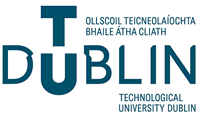Project Description
Sensory attributes (e.g. tenderness, flavour, juiciness) are key factors influencing consumers desire to purchase and consume red meat. The food industry has a need for accurate, fast and cheap scalable technologies to assess the overall acceptability of meat products to better predict consumer satisfaction in the marketplace. Sensory attributes of red meat are typically evaluated by trained human panellists, which can be time-consuming, costly, and lacks the flexibility required for successful commercialisation in the today’s fast-paced industry environment. Instrumental methods for objective evaluation of meat eating quality are also available but present similar disadvantages to trained sensory panels. Spectroscopy techniques, specifically hyperspectral imaging, have considerable potential to provide accurate predictions of meat eating quality in a more cost-effective and timely manner. In this project we aim to record spectral and hyperspectral data of meat samples (beef and sheep) using different instruments and develop prediction and classification models (i.e. ML, DL) of sensory traits to allow for the forecast of eating quality of meat during commercial meat production.
Student requirements for this project
Applications are invited from graduates holding or expecting BSc Hons (minimun 2.1) degree in Animal Science, Food Science, Food Engineering, or a similar discipline. Applicants with a relevant M.Sc. degree are also welcomed to apply. Demonstrated experience of the following areas: meat, spectroscopy, sensory, statistical data analysis will be advantage. The successful candidate should be highly self-motivated and have good communication skills (oral and written).
An applicant, whose native language is not English, must display an adequate proficiency in English. The minimum level required for TU Dublin research programmes is International English Language Testing System (IELTS) 6.0 or equivalent for the overall average score and a score not lower than 5.5 in each category.
If you are interested in submitting an application for this project, please also complete an Expression of Interest online by the closing date.

 Continue with Facebook
Continue with Facebook



